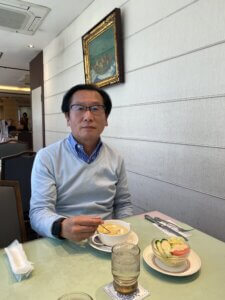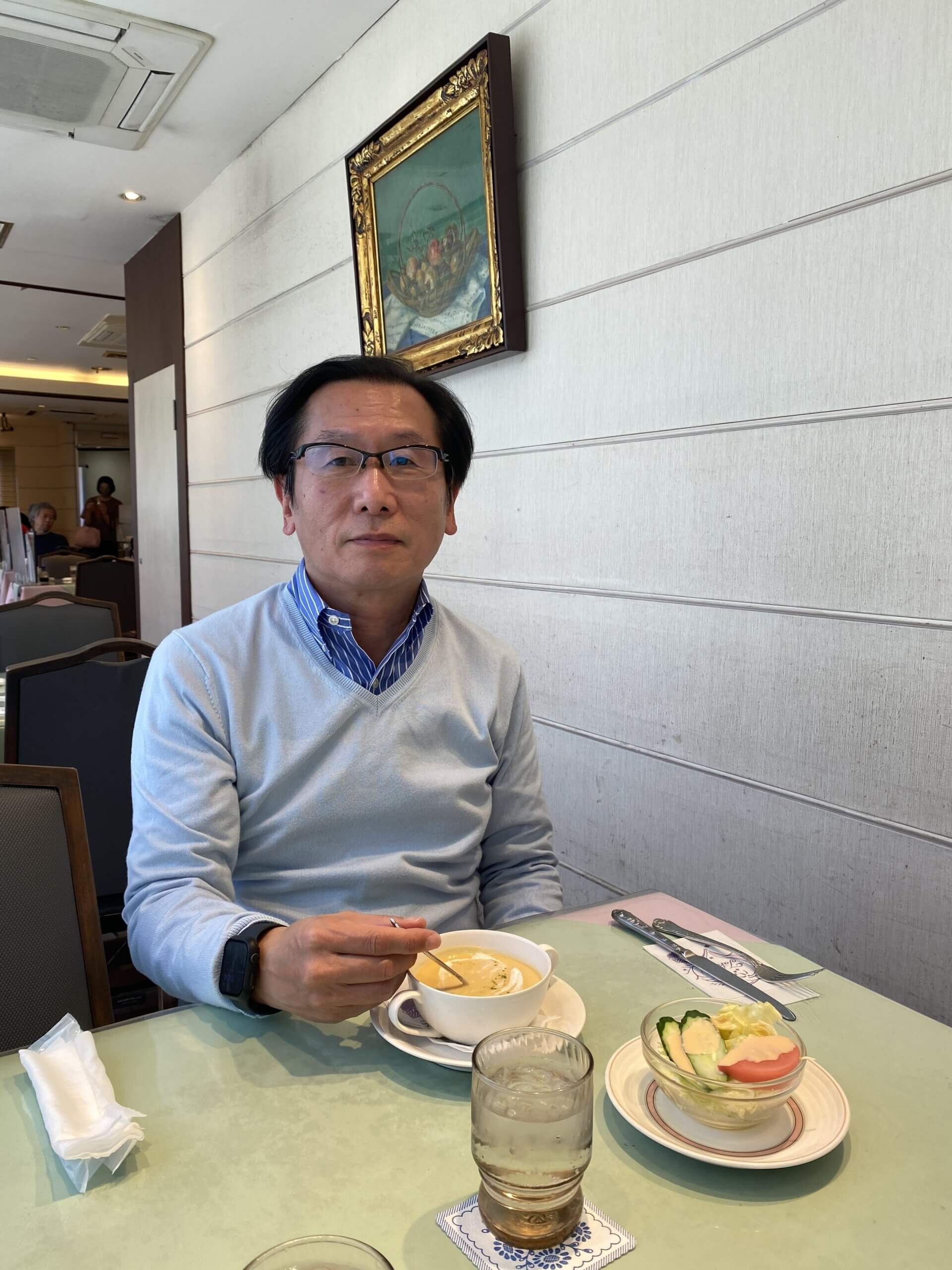This year Cactus Communications celebrates 20 years of supporting researchers on their publication journeys. Starting with our editing service, Editage, CACTUS soon expanded to publication support, pre-submission checks, research impact creation, and other solutions for researchers’, needs beyond publication. To celebrate, we recognize researchers from across the globe who share our vision in supporting and empowering researchers in this interview series.
Please briefly introduce yourself, focusing on your research experience and achievements.

I had a very slow start as a researcher. At first, I did not expect to become a researcher, but I was involved in managerial decisions in hospital practice, which required not only managerial knowledge but also medical knowledge, so I went to graduate school. I attended lectures at the graduate school while adjusting my work schedule, and the research was closely related to my work in nursing management.
I started by conducting research on medical information to improve the hospital’s medical system, and later I also conducted research on improving the flow of medical care using clinical paths. I then began to work on the problem of medical fee receivables, which amounted to $770 million in Japan as a whole but I had difficulty collecting the data. I conducted a study of 31,000 nurses in Japan to determine the causes of data turnover.
Before studying medicine, your undergraduate major was law. What made you want to study medicine? In Japan, is it difficult to apply for graduate school if you want to change majors? What are the obstacles in the process?
What made me decide to study medicine was that I started working at a general hospital as a management specialist, but the doctors who worked there between management and medicine told me that I understood management but not medicine, and at first there was a lot of rejection and no discussion. I decided to study environmental social medicine instead of basic medicine, thinking that if I understood medicine, doctors would listen to what I had to say. I had many friends around me who went from being bankers to gynecologists and surgeons, so I had no particular resistance.
There were very few students in the field I studied at a national graduate school, and the competition was fierce. In addition, because it was a very special field, there was no way to prepare for the entrance exam, and I took the exam with little preparation. The entrance examination for the doctoral program focused on how well I could understand English papers, and it was a test of my basic skills. In this sense, the biggest obstacle is whether you can be aware of problems related to medical care and construct logic on a daily basis.
Before you became a researcher, you were a manager, why did you switch from a manager to a researcher? In China, people mostly start out as researchers and move to managers step by step. Is it the same in Japan? If yes, why is your choice different from others?
In Japan, it is also normal to gradually move up from a researcher to a managerial position. In my case, however, I had already held management positions in several fields and wanted to gain more specialized knowledge, so I went against the general trend. The world is full of experts in either medicine or management, but not many people are well-versed in both. I went into this field not to save the patient in front of me, but to improve the entire healthcare system and save many patients from the misery of being sick.
What challenges do you need to overcome to go from a manager to a researcher?
Managers tend to ignore the not-so-small things because they focus on the big picture rather than the details, which they call the overall optimization. However, researchers need to focus on what people don’t notice, not the whole. Focusing on the big picture can instead blind us to the little things. We need to develop the ability to grasp both the whole and the details, and I feel that it is very difficult to become a researcher without this ability. I believe that a researcher needs to be able to focus and concentrate on one thing at a time.
What is your typical working day like?
The typical workday is from 9:00 a.m. to 6:00 p.m., and then I go to the university laboratory to do my own research from 11:00 p.m. to 24:00 p.m. It is difficult to continue working at home if you do not reduce the burden on your body by doing what you can do at home as much as possible. It is also very important to have the support of your family and others around you, as it is mentally demanding to live these lifestyles for a long period of time.
You have been involved in scientific research for 15 years, since you started your Ph.D. degree. From a novice to a qualified researcher, your cognition of scientific research must have gradually deepened. Can you describe the change in your cognition of scientific research? What do you think researching is like when you start out, and what do you think it is now?
I felt that the difference in energy expended in a master’s program and a doctoral program was 10 times different. The level of the thesis I wrote in the master’s program and the thesis I wrote in the doctoral program are also the same. Compared to when I started my own research, I think I am now able to do very high-level research. On the other hand, the more I do research, the more I realize that I am a person who does not understand anything. I used to think that research was about clarifying and unraveling the problems in front of me. However, I believe that research is to look deeply into oneself and the psychology or philosophy that is derived from that.
What is your proudest research achievement in these 15 years? Please tell us about this achievement and its scientific impact.
One of the results of the study was that we were able to conduct the largest study of nurse turnover in Japan, with a population of 12,000, which is the largest number of nurses ever studied. In addition, since this study focused on the thoughts of individual nurses, the results of the study showed what each of the 30,000 nurses were thinking. What had been thought to be the cause of turnover, mainly in university hospitals, appeared in the results of the analysis and could be quantified and shown.
How many papers have you published so far, which one is the most impressive one? Please recall the history of its publication.
All of the research I have done so far has been based on the obstacles I have faced in my work, and all of them are memorable in their own way. One of them was when I was faced with a very sad situation where I lost a number of nurses, and even after taking measures, some of them quit. Therefore, I undertook this research in order to find out how to prevent nurses from leaving the profession.
In your process of scientific research for years, what do you think is the most important thing to do when you are working on an essay?
The most important thing in writing an essay is not to compromise. It can be heartbreaking at times, but I think it is very important to think about what will happen after the research is completed and the significance of the research you have undertaken. For this reason, mental care is very important.
What is your dream regarding to your research life?
My dream for my research is to do research that will make medical professionals proud of their work, the same as I have done in the past.
Where do you see yourself in 10 years?
I want to make sure that 10 years from now I will not feel that I have left things undone. I hope that my research will have a positive impact on someone.



